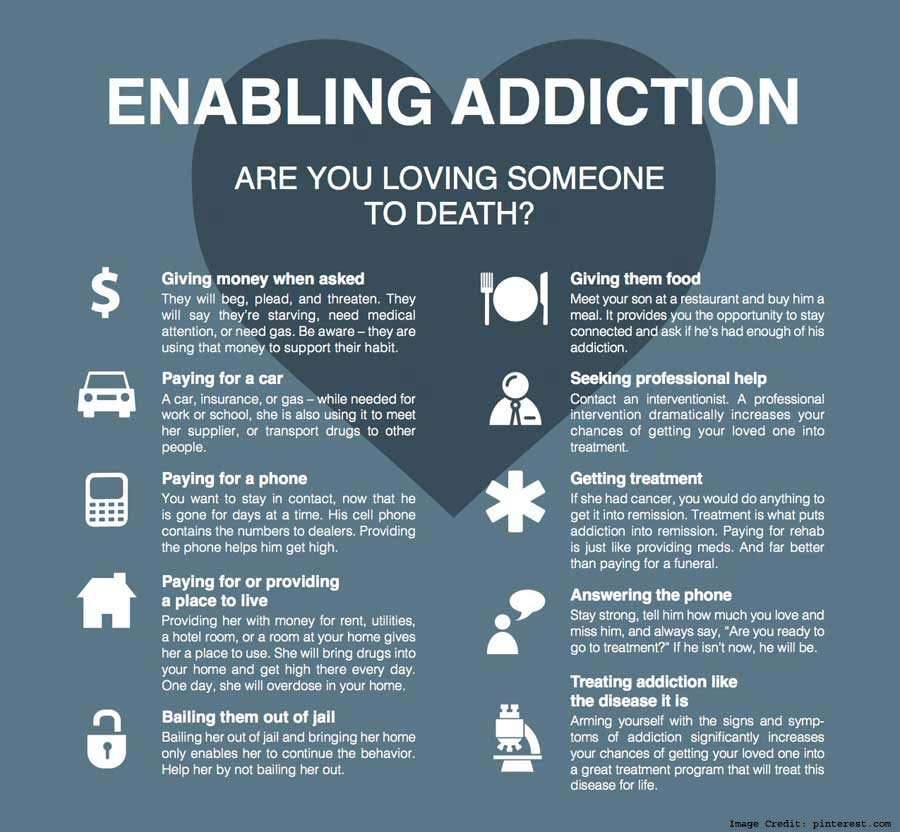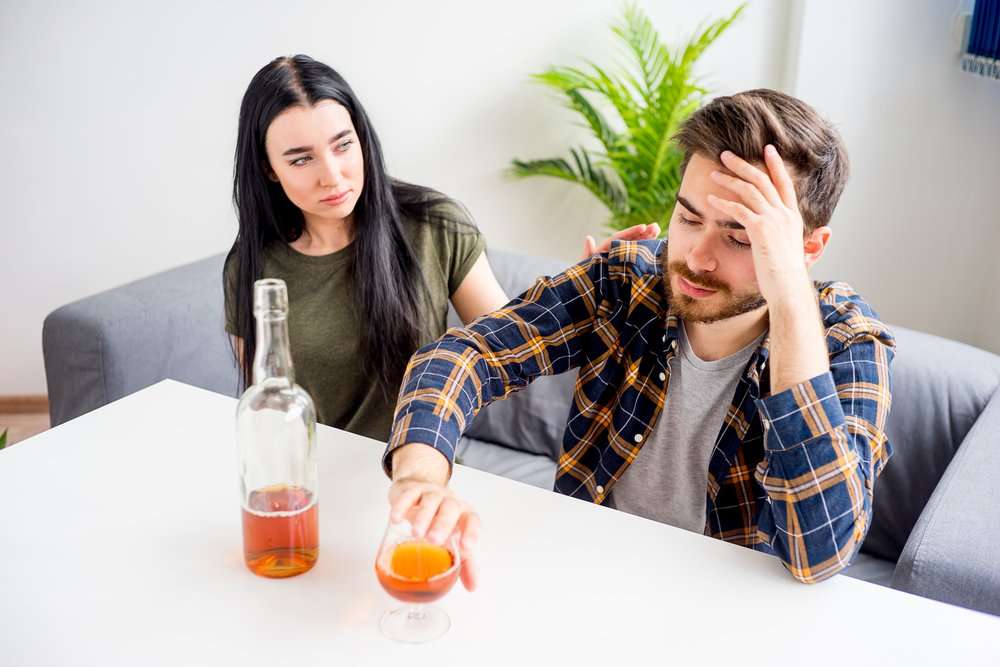Drug And Alcohol Treatment Options For Loved Ones
Individualized treatment plans that consider a persons unique needs are important for recovery and helping the person return to a productive and healthy life.19 One type of addiction treatment isnt better than another and many treatment options will include services like behavioral therapies, group therapy, family therapy, and individual counseling.19
Effective Treatment Options For Addiction
There are various treatment options for drug and alcohol addiction, including:
Detox
Individuals who suddenly stop taking alcohol or drugs may experience withdrawal symptoms. These withdrawal symptoms must be managed with professional medical support.
Certain medications and devices can help reduce the effects of withdrawal symptoms during detoxification. While detox is not substance abuse treatment itself, it is the first step in the addiction recovery process. It is usually done inside a treatment center. Patients who do not receive any additional treatment following detox usually continue their alcohol or drug use.
There are medications available to establish usual brain function and reduce cravings for the following drugs:
- Opioids
- Tobacco
- Alcohol
Scientists are still developing other medicines to address stimulant and cannabis addictions. People who abuse more than one drug require treatment for all the substances they use. Taking more than one drug is common for those experiencing addiction.
Residential Treatment
Long-term residential inpatient treatment offers those with addiction problems care 24 hours a day from health care providers. Typically, residential treatment occurs in non-hospital settings.
The best-known residential treatment program approach is the therapeutic community This treatment model provides planned lengths of stay between six and 12 months.
Many TCs provide other services onsite, including employment training and other support facilities.
What Should I Not Say To Someone About Their Drug Or Alcohol Use
When speaking to someone about their drug use, listen respectfully to their views, and respond calmly. The tone and the type of language you use is important.
Try to avoid the following, since this may upset the person and make them less likely to seek support:
- being judgmental
- using negative labels like addict
You May Like: How Do You Know If Your Addicted
Get Help For Yourself First
Being in a relationship with a person who has an addiction is often stressful. It’s important that you accept that what you are going through is difficult and seek support. You also need to develop stress management strategies, which is an important step in helping your loved one as well as yourself.
You might want to consider participating in support groups, such as Al-Anon or Naranon. Children and teens can get support from Alateen.
What If My Friend Isnt Responding To My Help

Sometimes, even the best efforts to help a friend arent enough to make them stop.
Find out about treatment resources that are available
Narcotics Anonymous and SMART Recovery are two self-help recovery programs that offer support from other people recovering from drug addictions, address the factors behind drug abuse and help people regain control of their lives. These websites have tons of information about addiction and getting help. If your friend isnt willing to go to a support group, try suggesting a confidential telephone service such as DirectLine.
Dont forget about yourself
When someone you care about is trapped in addiction, it affects you, too. Family Drug Help provides support and information to family members and friends of someone with an addiction.
Recommended Reading: How To Help Teenager With Drug Addiction
Why Is Spotting Opioid Addiction And Dependence So Difficult
It may not always be easy to tell if your loved one is struggling with opioid addiction, especially in the early stages of addiction. Sometimes, you may only notice slight changes in behavior, odd mood swings, or you may just feel strongly that something is not right with your loved one.
Spotting opioid addiction and dependence can also be difficult because many people who misuse opioids tend to maintain their employment, take care of other responsibilities at home, and maintain a stable appearance overall. However, as time goes on, the consequences of addiction will worsen and become more apparent.
Even if you know someone very well, you may not be able to objectively assess the persons drug abuse or recognize opioid addiction if its a problem. A doctor or a licensed addiction treatment professional may be better suited to determine whether or not your loved one is addicted to opioids.
Treatment Approaches For Drug Addiction Drugfacts
NOTE: This fact sheet discusses research findings on effective treatment approaches for drug abuse and addiction. If youre seeking treatment, you can call the Substance Abuse and Mental Health Services Administration’s National Helpline at 1-800-662-HELP or go to for information on hotlines, counseling services, or treatment options in your state.
Recommended Reading: How Strong Is Nicotine Addiction
How To Talk To Someone With An Alcohol Or Drug Addiction
You might feel anxious or worried about talking to your loved one, and thats completely normal. It may be helpful to set aside time to talk when you and your loved one are sober and youre both feeling calm.11
Theres no perfect way of knowing how to help someone dealing with addiction, but a few ways to start the conversation can include:10, 11
- Emphasizing your love and concern, such as saying, I love you and I am concerned about your drinking/substance use.
- Sticking to the facts and providing examples like, I am worried by your angry behavior when you drink/use drugs.
- Letting them know that treatment can help, and they dont have to do it alone. You might say, I know it is not easy for you, but I have read that many people can stop drinking/using drugs if they get some type of treatment.
- Acknowledge their feelings. Let them talk and listen without judgment or arguing.
- Reinforce that you want to help and that youre going to stick by them. You might say, I am here for you no matter what, and I want you to know that I am willing to help you.
Find An Approach That Works
There are a number of different treatment options that can be effective, so it is important to consider the options. Think about which approach might be best suited to you and your loved one’s needs and goals.
Depending on the nature of the addiction, treatment might involve psychotherapy, medication, support groups, or a combination of all of these. A few options include:
Other important factors that can affect a person’s recovery include family involvement and other social supports. The Substance Abuse and Mental Health Services Administration suggests that family therapy is an important part of an effective recovery plan.
Don’t Miss: Is An Alcoholic An Addict
Learning More About Treatment Options
The more you know about addiction and the treatment options that exist for the disease, the more help you can be to your friend or loved one that is struggling. It is fine to contact treatment professionals or centers in your area or to reach out to the Health and Human Services national helpline at 1-800-662-HELP to learn more. The more you know, the better equipped you are to support your friend or loved one.
As a friend or loved one, you can play an important role in helping someone get the support they need to overcome their substance use disorder. You should never think that you can solve the problem alone, and you should always seek out the support and guidance of a professional. Recovery from addiction is a process, not a destination. today to speak to a representative about our treatment programs.
Medical Disclaimer: The Recovery Village aims to improve the quality of life for people struggling with a substance use or mental health disorder with fact-based content about the nature of behavioral health conditions, treatment options and their related outcomes. We publish material that is researched, cited, edited and reviewed by licensed medical professionals. The information we provide is not intended to be a substitute for professional medical advice, diagnosis or treatment. It should not be used in place of the advice of your physician or other qualified healthcare provider.
Follow Through On Consequences
Many friends or family members threaten to enforce serious consequences for addicted loved ones who refuse treatment. However, these are often seen as idle threats. If youre going to make a real impact, you must actually follow through.
Whether its as simple as grounding or taking away the car, or something more drastic like forcing a loved one to move out of the house, if you say it, you must be willing to do it.
You May Like: What Am I Addicted To
How To Set Boundariesand Stick To Them
Stay In Touch With Personal Joy

Managing expectations is a little easier when individuals are responsible for their own bliss. That means every member of a recovering family needs to take time to do something thats relaxing and fulfilling. This could include:
- Playing an instrument
- Cooking
- Crafting
These activities and others like them can make the participant feel happy, preserve a sense of efficacy and worth and help boost mental health.
For example, an author for Psychology Today reports that knitters get a boost of calming chemicals in their brain cells when they sit down with needles and yarn. The hobby is repetitive, but these actions can be soothing. Its a form of meditation that allows people to slow down their active brain cells. At the end of a knitting session, people have a product to show for the time theyve spent. When life is full of activities that seem hard to complete and progress is difficult to see, a hobby that produces something tangible can be a great comfort.
You May Like: Can People Get Addicted To Marijuana
Reach Out Online Chat
Our team provides free, confidential advice on a range of issues, including drug or alcohol worries and mental health whether they affect you directly or a friend or relative. And if we dont have the answers to all of your questions, we will be able to signpost you to somebody who will. Our online chat service is currently available between 9am and 3pm Monday-Friday . Please note: Reach Out is not a crisis service. If you are in an urgent situation or emergency, such as a suspected overdose, call 999. If you are in crisis, contact the Samaritans.
What To Avoid When Talking To A Loved One About Addiction
When talking to a loved one about getting treatment for their addiction, here are some things to avoid:
- Preaching, lecturing, threatening or moralizing your loved one
- Emotional appeals that may increase the feelings of guilt and the compulsion to use drugs
- Lying or making excuses for their behavior
- Taking over their responsibilities doing this protects them from the consequences of their behavior
- Enabling their behavior by covering up the abuse or giving them money for drugs
- Arguing with your loved one when theyre using drugs during this time, your loved one wont be able to hold a rational conversation and likely wont be open to what you have to say
- Feeling guilty or responsible for their behavior its not your fault
If you feel that your loved one is abusing drugs, the best thing you can do is to encourage them to seek treatment for their addiction. Be loving and supportive, but also know that theyre likely going to make excuses for their behavior. Be firm in what you want, and keep encouraging them to get help. Although this isnt easy to do, its a critical first step in helping them achieve a healthy and happy life in recovery.
Also Check: What Nasal Spray Is Addictive
Tips For Coping With A Loved One’s Substance Use Disorder
The pathway to healing and recovery is often a journey that can progress over multiple years. Addiction not only involves the individual suffering from the substance use disorder, but their partner, their family, and their friends as well.
When supporting a partner or family member who is in active addiction to alcohol or other drugs, its critically important that you also take care of your well-being. It is a balancing act of offering support to your partner in navigating the treatment and recovery options available, while at the same time not losing sight of what you need to be happy and healthy.
Find 8 tips below for how to balance supporting the positive health behaviors of your partner, while also taking care of yourself.
How Are Medications And Devices Used In Drug Addiction Treatment
Medications and devices can be used to manage withdrawal symptoms, prevent relapse, and treat co-occurring conditions.
Withdrawal. Medications and devices can help suppress withdrawal symptoms during detoxification. Detoxification is not in itself “treatment,” but only the first step in the process. Patients who do not receive any further treatment after detoxification usually resume their drug use. One study of treatment facilities found that medications were used in almost 80 percent of detoxifications . In November 2017, the Food and Drug Administration granted a new indication to an electronic stimulation device, NSS-2 Bridge, for use in helping reduce opioid withdrawal symptoms. This device is placed behind the ear and sends electrical pulses to stimulate certain brain nerves. Also, in May 2018, the FDA approved lofexidine, a non-opioid medicine designed to reduce opioid withdrawal symptoms.
Relapse prevention. Patients can use medications to help re-establish normal brain function and decrease cravings. Medications are available for treatment of opioid , tobacco , and alcohol addiction. Scientists are developing other medications to treat stimulant and cannabis addiction. People who use more than one drug, which is very common, need treatment for all of the substances they use.
Recommended Reading: How To Know If Addicted To Alcohol
Tips For Helping Someone With An Addiction
The challenge with addiction is that the addict is not the only one impacted by this disease. Family and friends can have difficulty with the addicts behavior, financial problems, legal problems and the daily struggle of supporting a loved one. Here are seven tips that family and friends can reference to support an addicted family member or friend.
How To Talk To Someone About Their Drug Abuse
Starting a conversation with someone about their drug addiction is never easy, but its important you come from a place of compassion and understanding. Remember, no one sets out to become an addict. Drug abuse is often a misguided attempt to cope with painful issues or mental health problems. Stress tends to fuel addictive behavior, so criticizing, demeaning, or shaming them will only push your loved one away and may even encourage them to seek further comfort in substance abuse.
Discovering someone you love has a drug problem can generate feelings of shock, fear, and anger, especially if its your child or teen whos using. These strong emotions can make communicating with a drug user even more challenging. So, its important to choose a time when youre both calm, sober, and free of distractions to talk. Offer your help and support without being judgmental.
Dont delay. You dont have to wait for your loved one to hit rock bottomto get arrested, lose their job, suffer a medical emergency, or publicly humiliate themselvesto speak out. The earlier an addiction is treated, the better.
Express your concerns honestly. Emphasize that you care for the person and are worried about their well-being. Offer specific examples of your loved ones drug-related behavior that have made you concernedand be honest about your own feelings.
Staging an intervention
Don’t Miss: How To Overcome Video Game Addiction
Simple Tips To Help An Addicted Loved One Who Doesnt Want Help
Anyone who has experienced life with a friend or family member suffering from addiction knows that once the addiction has taken over, it often takes reaching a rock bottom before that person will take action, if even then. From the outside, this idea of a rock bottom is absolutely terrifying, which leads us to ask what can we do before it gets to this point? How do you help an addict who doesnt want your help? Read on to find out some basic pointers on how to get through to an addict before its too late.
What To Expect In Rehab

If your loved one has decided to enter a treatment program for their addiction, they can expect to first check-in and complete an intake interview. This will allow the program to create a plan tailored to their needs.
The next step involves detoxing to remove any substances from their body. This process can take anywhere from three to 14 days and can be aided by medications to ease withdrawal symptoms.
After detox, the next step involves therapy to help them adjust and develop new thought and behavior patterns that will support their long-term recovery.
You May Like: Why Do Drug Addicts Have Sores On Their Faces
